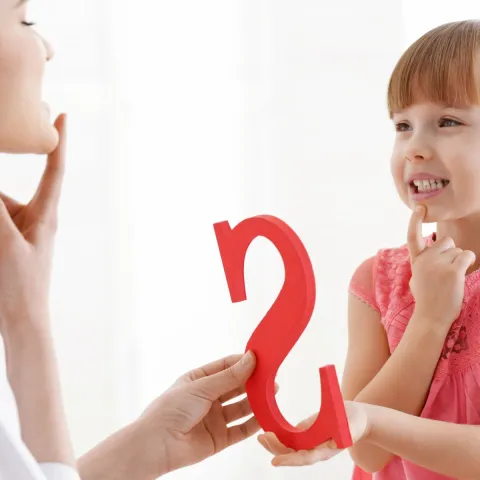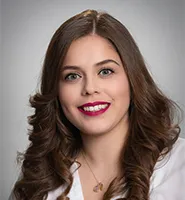SLPs Make a Difference
May is National Speech, Language, and Hearing Month – a time to celebrate and acknowledge the profound influence and dedication of individuals within the field of speech-language pathology (SLP). We are so grateful to all current and aspiring speech-language pathologists for their unyielding commitment, resilience, and remarkable impact on the lives of others.
The American Speech-Language Hearing Association (ASHA) describes National Speech-Language-Hearing Month as “an opportunity to raise awareness about communication disorders and the role of ASHA members in providing life-altering treatment.” Learn more about SLH month, discover resources for SLP professionals and find ways to celebrate all month long at ASHA.org/national-speech-language-hearing-month.
Discover the transformative role of speech-language pathologists and their impact on shaping the world through communication and cognitive rehabilitation.
What is Speech-Language-Hearing Month?
Speech, language, and hearing all assist us in communicating with one another. But did you know that an estimated 5% to 10% of Americans have a communication disorder that affects one or more of these areas? It is essential to raise awareness about these disorders so that speech, language, and hearing experts can provide intervention and treatment when necessary. In light of this, the month of May has been declared Speech-Language-Hearing Month.
According to the American Speech-Language-Hearing Association (ASHA), “National Speech-Language-Hearing Month provides an opportunity to raise awareness about communication disorders and the role of ASHA members in providing life-altering treatment.”
About Speech-Language-Hearing Month
Each May, ASHA, and countless speech-language pathologists (SLPs) and audiologists join to educate the public about the prevention and treatment of various communication disorders. This year’s observance is particularly meaningful as 2025 marks ASHA’s Centennial, a milestone offering the opportunity to celebrate the profound impact that audiologists and speech-language pathologists have had on society over the past 100 years, and the possibilities for the future.
Speech-Language-Hearing Month is acknowledged and promoted through digital campaigns, widespread information and resources, and recognized by countless public figures, from local government leaders and community organizations to the White House, the Centers for Disease Control and Prevention (CDC), and the National Institutes of Health (NIH).
The History of SLH Month
Speech-Language-Hearing Month has a storied history of raising awareness that helps Americans with communication disorders receive care and treatment. Founded in 1927, this observance has undergone several name changes throughout the years to reflect inclusivity and expanding knowledge within the field.
The Mission of SLH Month
Through each iteration, ASHA has used the month of May to raise awareness for communication disorders, educate the public about hearing loss prevention, and encourage those who are experiencing symptoms of any communication disorder to seek treatment. In many cases, early intervention can make a big difference.
About Speech-Language-Hearing Disorders
Speech Disorders
According to the National Health Institute, 7.7% of children ages 3-17 have a speech disorder in the United States. Medical News Today states that “a speech disorder is any condition that affects a person’s ability to produce sounds that create words.” This includes stuttering, apraxia, spasmodic dysphonia, lisp, speech delays, and many other diagnoses.
Language Disorders
While speech disorders are associated with trouble with sounds in communication attempts, language disorders are typically associated with trouble with comprehension of language — and often, there is some overlap between the two. ASHA explains that receptive language disorders occur when someone cannot understand what others say, and expressive language disorder occurs when someone cannot express what they would like to say.
Aphasia is one of the most common language disorders diagnosed today — approximately 1 million adults in the United States have aphasia. It’s important to remember that language disorders are not related to intelligence but to someone’s ability to communicate. While many language disorders begin in early childhood, some can be caused by illness or injury and may present for the first time in adulthood.
Hearing Disorders
The WHO published the World Report on Hearing in 2021, declaring that more than 1.5 billion people are affected by hearing loss globally, and that number continues to rise. According to the NIH, about 37.5 million American adults report some level of hearing loss.
Hearing disorders can also affect balance and cause dizziness. The WHO report discusses the importance of early intervention, timely care, and regular screening, along with sharing tips about how to prevent hearing loss from repeated and prolonged exposure to loud noises.
Appreciation and Celebration of SLH Professionals
Speech-Language-Hearing professionals are dedicated to improving the lives of those in their care. They make a positive impact on their communities, and this month is an excellent time to honor their work.
Which Professionals Provide SLH Services?
There are two types of Speech-Language-Hearing professionals. Audiologists assess and treat hearing and balance disorders, while speech-language pathologists (SLPs) assess and treat speech, swallowing, and language disorders. Both are essential for treating individuals with communication disorders.
Other SLH Celebrations of Note
- Speech-Language Pathologist Day
Speech-Language Pathologist Day, also known as National SLP Appreciation Day, began in 2010 and is observed on May 18 each year. This day was created to honor SLP professionals who dedicate their lives to treating speech and language disorders for millions of Americans. - World Hearing Day
World Hearing Day is observed around the globe every year on March 3. The World Health Organization (WHO) develops resources to raise awareness, supported by other organizations in many countries. According to the CDC, “World Hearing Day promotes ear and hearing care across the world and raises awareness of how to prevent deafness and hearing loss.”
Begin Your Journey SLP Career Journey
The need for speech-language pathologists is ever-expanding. Aspiring SLP professionals can start their journey at Ithaca College. By earning your Master's in Speech-Language Pathology online, you’ll receive a degree backed by more than 100 years of experience in SLP education. Begin your journey at Ithaca College today.
SLP Career by the Numbers
Explore the number of reasons that make a career as a Speech-Language Pathologist rewarding.
Source: Bureau of Labor Statistics, Lightcast.io (2022)
Celebrating SLP Students & the Importance of Communication
The path forward for those with speech and hearing disorders can be challenging but rewarding. For speech-language pathologists, patients, or caregivers, the importance of communication is paramount. It’s crucial to recognize that resilience and progress are not only feasible but essential components of this journey.
Whether you are newly venturing into your SLP journey or progressing in your career, always remember that Ithaca College stands ready to offer support every step of the way.
Career Development FAQ
Are you interested in pursuing or advancing a career in Speech-Language Pathology? Get answers to your frequently asked questions about Ithaca College’s Online SLP program.
The degree can be completed in 3 years (8 semesters) or less without prerequisite courses or just under 4 years (11 semesters) with prerequisite courses.
Yes! Ithaca College has a more than 100-year legacy in SLP education, so you can expect a quality education taught by expert faculty dedicated to student success.
Yes. The coursework for this program is 100% online with no on-campus residency requirement. However, students will gain hands-on experience through in-person clinical placement near their community.
The online M.S. SLP degree has two intakes per year, Fall and Spring.
Successful completion of the M.S. SLP degree includes 53 credit hours (8 semesters) without prerequisite courses and 71 credit hours (11 semesters) should prerequisite courses be required.
Yes! This program is designed specifically for working professionals to maintain work/life balance. No campus visits or travel are required. However, in your last semester you will be expected to dedicate time to clinical experiences and work commitments may need to change.




